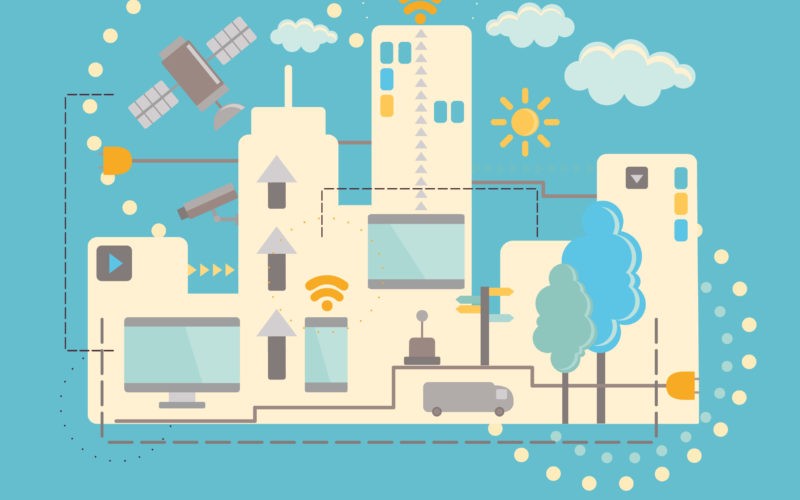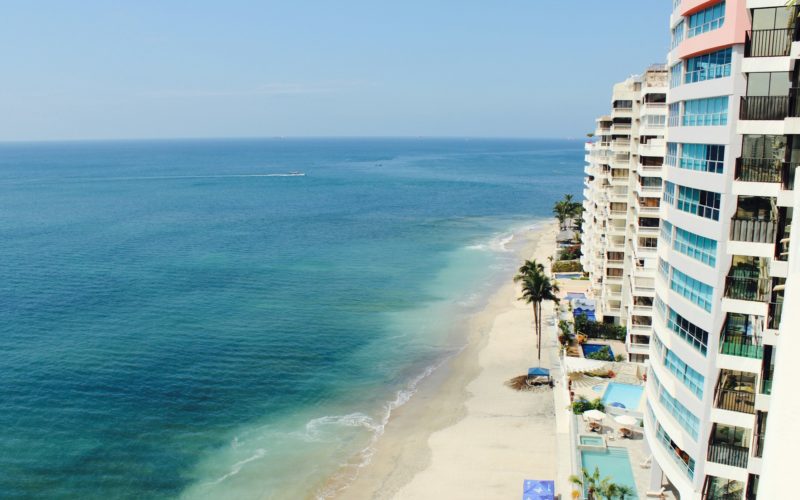How is Arizona transforming itself into a hub of technological innovation and sustainable infrastructure? Through strategic investments in semiconductor manufacturing, data centers, broadband access, and public transit, the state is laying the groundwork for a future-ready economy and a higher quality of life for its residents.
Arizona’s commitment to closing the digital divide and expanding eco-friendly transportation options demonstrates a forward-thinking approach to growth that balances economic progress with environmental responsibility. This vision positions Arizona as a leader in creating infrastructure that not only supports but actively enhances the lives of its people.
Arizona’s Semiconductor Boom
Arizona has emerged as an important hub in the semiconductor industry, significantly bolstered by Taiwan Semiconductor Manufacturing Company’s (TSMC) substantial investments. In 2020, TSMC announced plans to build a $12 billion facility in Phoenix, marking a significant step in enhancing U.S. semiconductor manufacturing capabilities.
By December 2022, the company expanded its commitment, planning a second fab and increasing its total investment to $40 billion. This expansion represents the largest foreign direct investment in Arizona’s history and one of the largest in the United States.
In April 2024, TSMC further escalated its investment to over $65 billion, announcing the construction of a third fab in Arizona. This development is supported by up to $6.6 billion in direct funding under the CHIPS and Science Act, aiming to bring the world’s most advanced semiconductor manufacturing to the U.S.
The three fabs are expected to create approximately 6,000 high-tech, high-wage jobs, fostering a competitive semiconductor ecosystem that enables leading U.S. companies to access domestically manufactured, cutting-edge semiconductor products.
Data Center Development and Digital Infrastructure
Arizona has become a significant hub for data center development, driven by its strategic location, favorable climate, and supportive business environment. In March 2024, a Denver-based developer proposed a $14 billion master-planned data center complex across 1,000 acres in the Phoenix metro area, marking one of the largest data center projects in the region. By July 2024, Tract announced plans for a 1.8 gigawatt data center park in Phoenix, further solidifying the state’s position in the data center industry.
The surge in data center construction is complemented by significant investments in digital infrastructure. In April 2024, the Biden-Harris Administration approved Arizona’s “Internet for All” initiative, allocating over $993 million to deploy or upgrade high-speed internet networks statewide.
This funding aims to ensure that all Arizonans have access to reliable, affordable, high-speed internet services, enhancing connectivity and supporting the state’s growing digital economy.
Future-Ready Transportation Networks
Arizona is proactively enhancing its transportation infrastructure to accommodate future growth and improve connectivity. The Arizona Department of Transportation has adopted the 2050 Long-Range Transportation Plan, which outlines strategic priorities for the next 25 years.
This plan emphasizes repairing and preserving existing highway infrastructure, addressing growth, and improving highways in rural areas. The plan projects $69 billion in transportation revenues between 2026 and 2050, including funding from the federal Infrastructure Investment and Jobs Act. It also identifies anticipated transportation needs totaling $231 billion over the same period.
In line with these objectives, ADOT is undertaking significant projects to expand and modernize key transportation corridors. For instance, the Interstate 10 expansion between Phoenix and Tucson aims to alleviate congestion and enhance safety by adding additional lanes and improving interchanges. This project is crucial for supporting the state’s economic activities and accommodating population growth.
As Arizona’s infrastructure expands, it also emphasizes road safety for all users, including pedestrians and cyclists. In the event of roadway incidents, a bicycle accident attorney can provide essential support, helping victims understand their rights and navigate legal options. The development of Interstate 11 is also underway, intended to create a new trade corridor linking Arizona with neighboring states and Mexico, thereby boosting regional commerce and connectivity.
Public Transit Expansions for Sustainable Growth
Arizona is actively expanding its public transit infrastructure to support sustainable growth and enhance connectivity. In January 2024, Valley Metro opened the Northwest Extension Phase II of its light rail system, adding 1.6 miles and three new stations, including the system’s first elevated station and a rail-only bridge over Interstate 17. This extension connects Mesa, Tempe, and Phoenix, facilitating greater access to the West Valley and promoting transit-oriented development in the region.
Looking ahead, Valley Metro is progressing with the South Central Extension, a 5.5-mile addition that will extend light rail service south from downtown Phoenix to Baseline Road.
Scheduled for completion in 2025, this project aims to improve transit options for South Phoenix residents and stimulate economic development along the corridor. The Capitol/I-10 West Extension is in the planning stages, intending to connect the State Capitol area to the existing light rail system and further expand service into West Phoenix.
Smart Infrastructure and Green Building Initiatives
Arizona is actively advancing smart infrastructure and green building initiatives to promote sustainability and enhance urban living. In 2020, the state established “The Connective,” a collaborative effort uniting public, private, and academic sectors to develop smart region infrastructure. This initiative focuses on integrating technology into urban planning to improve connectivity, mobility, and sustainability across the Greater Phoenix area.
Municipalities within Arizona are also leading in green building practices. In July 2023, Scottsdale became the first city in the state to mandate the International Green Construction Code for commercial and multi-family projects.
This code addresses various sustainability aspects, including heat island mitigation, electric vehicle charging infrastructure, and construction waste reduction. Scottsdale’s leadership has inspired other cities, such as Flagstaff and Tucson, to consider similar green building initiatives, contributing to a statewide movement towards environmentally responsible construction.
Arizona’s Vision for a Technologically Advanced Future
What does Arizona’s future hold as it continues to embrace technology and infrastructure advancements? The state’s investments in semiconductor manufacturing, data centers, broadband expansion, and sustainable transit demonstrate a clear vision – to be a leader in both economic growth and quality of life through innovation.
By addressing transportation needs, enhancing public transit, and closing the digital divide, Arizona is building a resilient foundation that benefits residents, businesses, and the environment alike. As these projects unfold, Arizona is positioning itself not just as a regional powerhouse but as a forward-thinking model for sustainable, technology-driven development in the United States.












